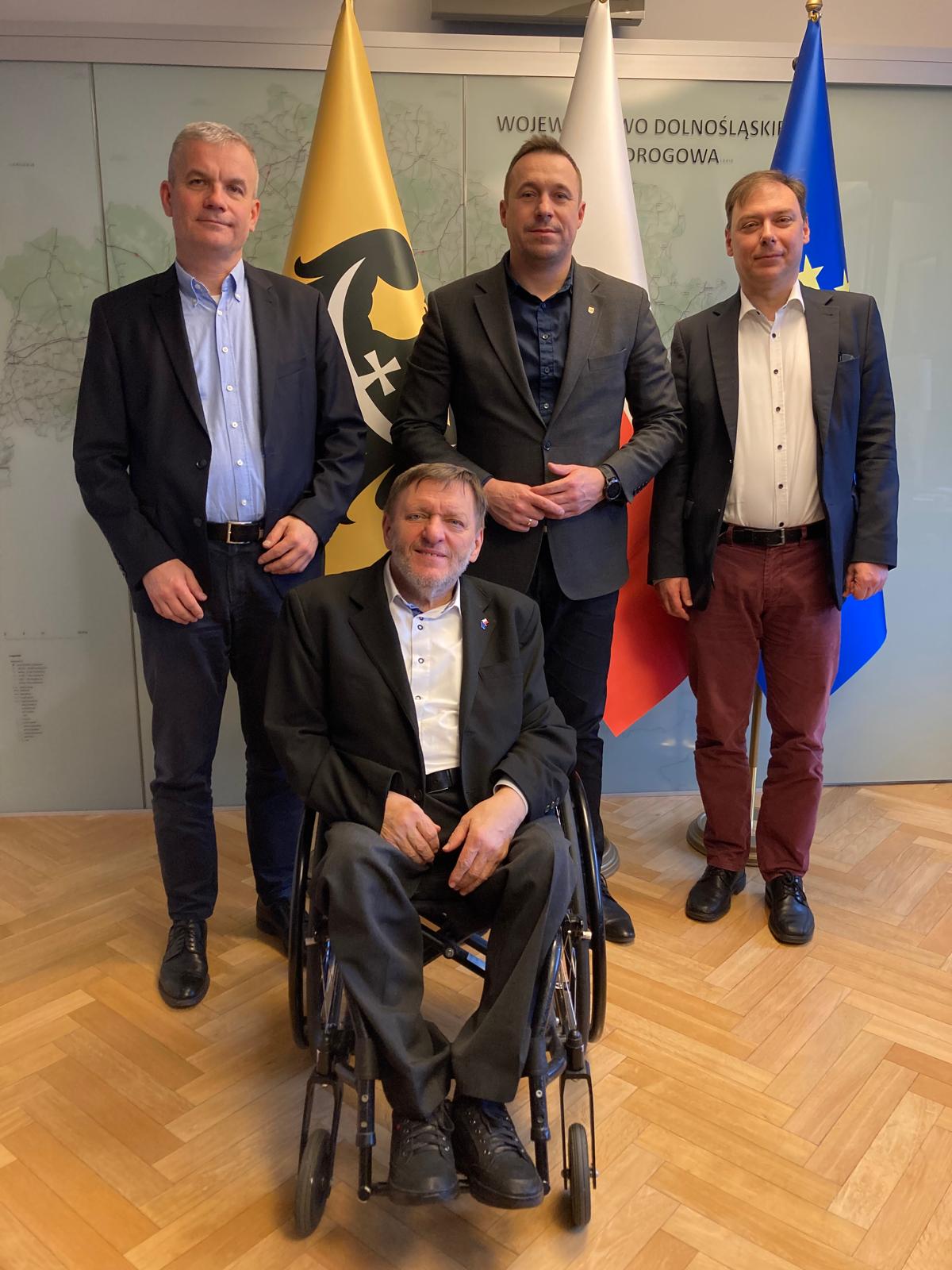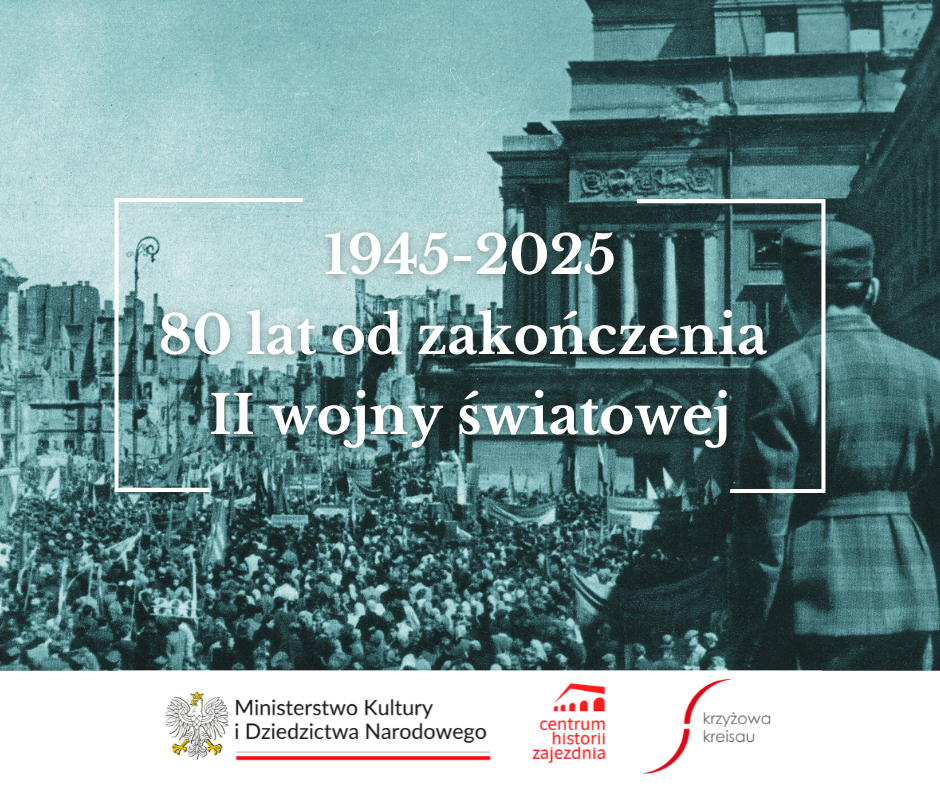.png)
What made Krzyżowa a symbol of German-Polish reconciliation? What were the beginnings of the construction of this place as a space for dialog, education and remembrance?
These and many other questions are answered in a moving conversation between Aureliusz Marek Pędziwol and Maryna and Michał Czaplinski, board member of the Krzyżowa Foundation and member of the Foundation's Honorary Council. It is a meeting full of memories, personal reflections and a deep conviction of the strength of the civic community.
There are many topics in the conversation that relate not only to Krzyżowa's past, but also to the city's current mission and future. The interviewees remember the defining moments of the place - both on a symbolic level and on a very concrete level: human decisions, daily work and community involvement.
🔹 Why has Krzyżowa become a place of encounter?
🔹 What role did the civic grassroots initiative play on both sides of the Oder?
🔹 How can historical memory create trust between nations?
This is a remarkable story about how history influences our present and how we can live it wisely. Important words are also spoken: “We will go to Krzyżowa if the Poles invite us” - a symbolic sentence that reminds us that true reconciliation cannot be one-sided. It must be based on mutual respect and a willingness to engage in dialog.
We invite you to read the interview - it is an important voice in the debate on remembrance, responsibility and the future of Europe:
https://forumdialogu.eu/
Read more: “We will go to Krzyżowa if the Poles invite us” - an extraordinary conversation about the history...
 A meeting took place on February 6, 2025, attended by the Chairman of the Supervisory Board of the Krzyzowa Foundation for Mutual Understanding in Europe, Dr. Grzegorz Warzocha, and the Foundation's Managing Director, Dr. Robert Żurek. A councilor of the Lower Silesian Parliament and friend of Krzyzowa, Slawomir Piechota, also joined the discussion. The meeting was held to discuss the possibility of further cooperation between the Foundation and the Lower Silesian Marshal's Office.
A meeting took place on February 6, 2025, attended by the Chairman of the Supervisory Board of the Krzyzowa Foundation for Mutual Understanding in Europe, Dr. Grzegorz Warzocha, and the Foundation's Managing Director, Dr. Robert Żurek. A councilor of the Lower Silesian Parliament and friend of Krzyzowa, Slawomir Piechota, also joined the discussion. The meeting was held to discuss the possibility of further cooperation between the Foundation and the Lower Silesian Marshal's Office.
During the meeting, which was attended by Lower Silesian Marshal Pawel Gancarz, representatives of the Foundation thanked the Marshal for the fruitful cooperation with the Marshal's Office to date, and presented proposals for its further strengthening.
Mr. Marshal Pawel Gancarz expressed his appreciation for the activities of the Krzyzowa Foundation and its impact on the development of the region. He enthusiastically accepted the invitation to visit Krzyzowa, a sign of his commitment to deepening cooperation in the future.
Read more: Meeting with the Marshal of Lower Silesia Paul Gancarz

In 2025, we will commemorate the 80th anniversary of the end of World War II. This is an opportunity not only to celebrate the victory over Nazi Germany, but also to raise the question of what exactly happened in 1945 and why that year did not mark the end of the fighting and the beginning of rebuilding for all of Europe.
Today, as the full-scale Russian invasion of Ukraine continues into its third year, questions about the causes and long-term consequences of World War II are particularly relevant. The war experiences in Europe have never felt as close to us as they have since February 24, 2022.
Read more: Joint educational activities of the Krzyżowa Foundation and the "Memory and Future" Centre on the...

The Krzyżowa Foundation for Mutual Understanding in Europe, which has been involved in activities promoting dialogue, reconciliation, and peace in Europe for many years, believes in open and responsible communication. Due to the dynamic development of digital platforms and the search for optimal channels to reach audiences, we are announcing the suspension of the Krzyżowa Foundation's presence on the X platform.
This decision stems from the desire to promote positive, reliable, and dialogue-supporting attitudes. The Krzyżowa Foundation will continue its mission on other platforms that better meet the needs of building spaces for healthy and constructive conversations, remaining faithful to its values, such as dialogue and understanding.
The Board of the Krzyżowa Foundation for Mutual Understanding in Europe
Dorota Krajdocha, Dr. habil. Robert Żurek
Read more: The Krzyżowa Foundation Suspends Its Presence on X


.png)




